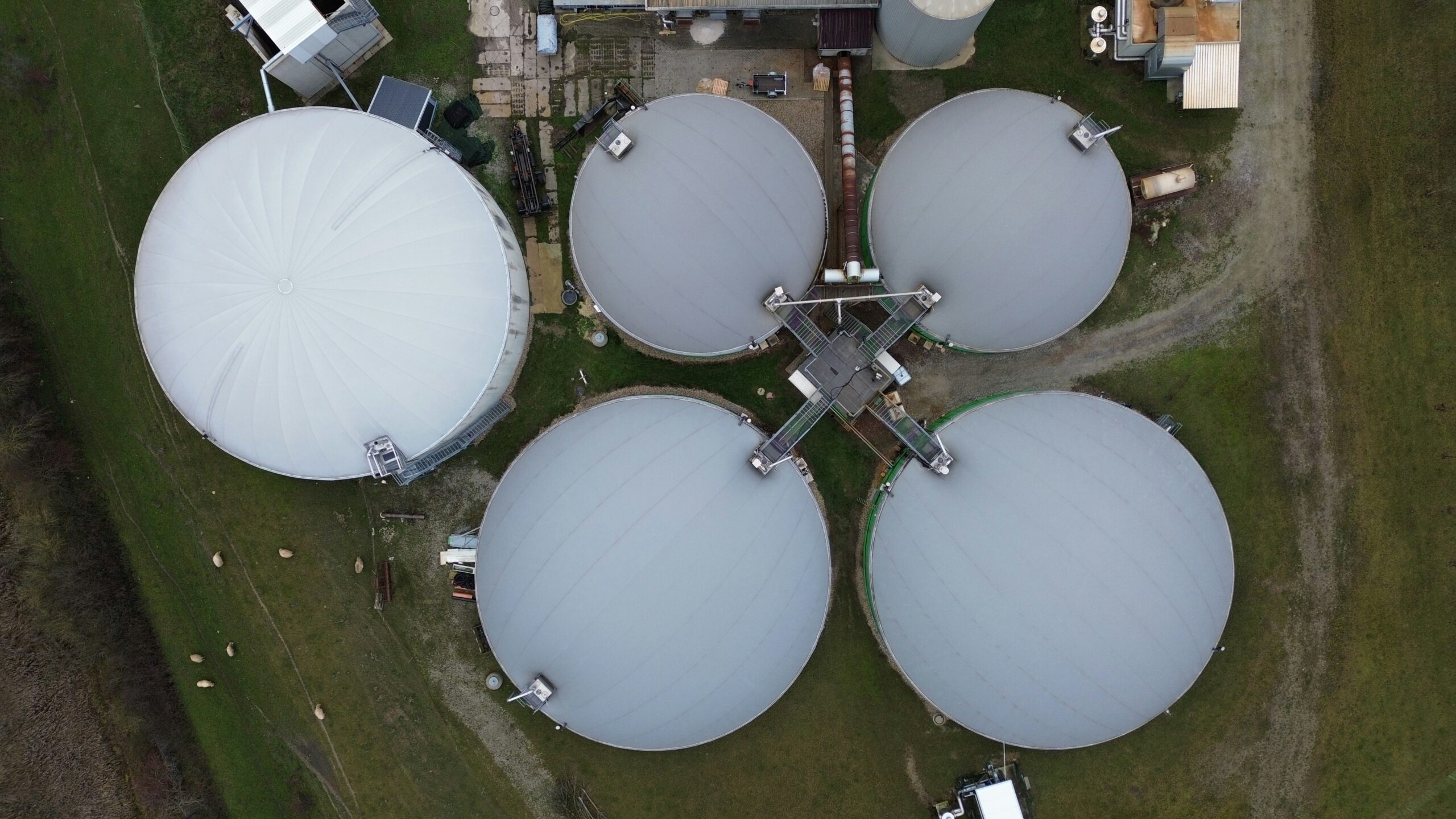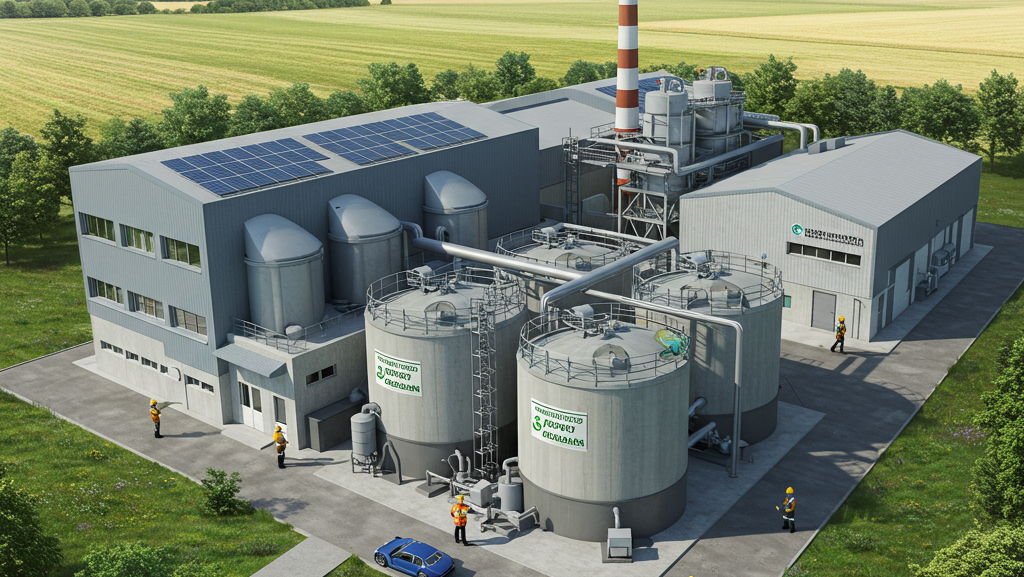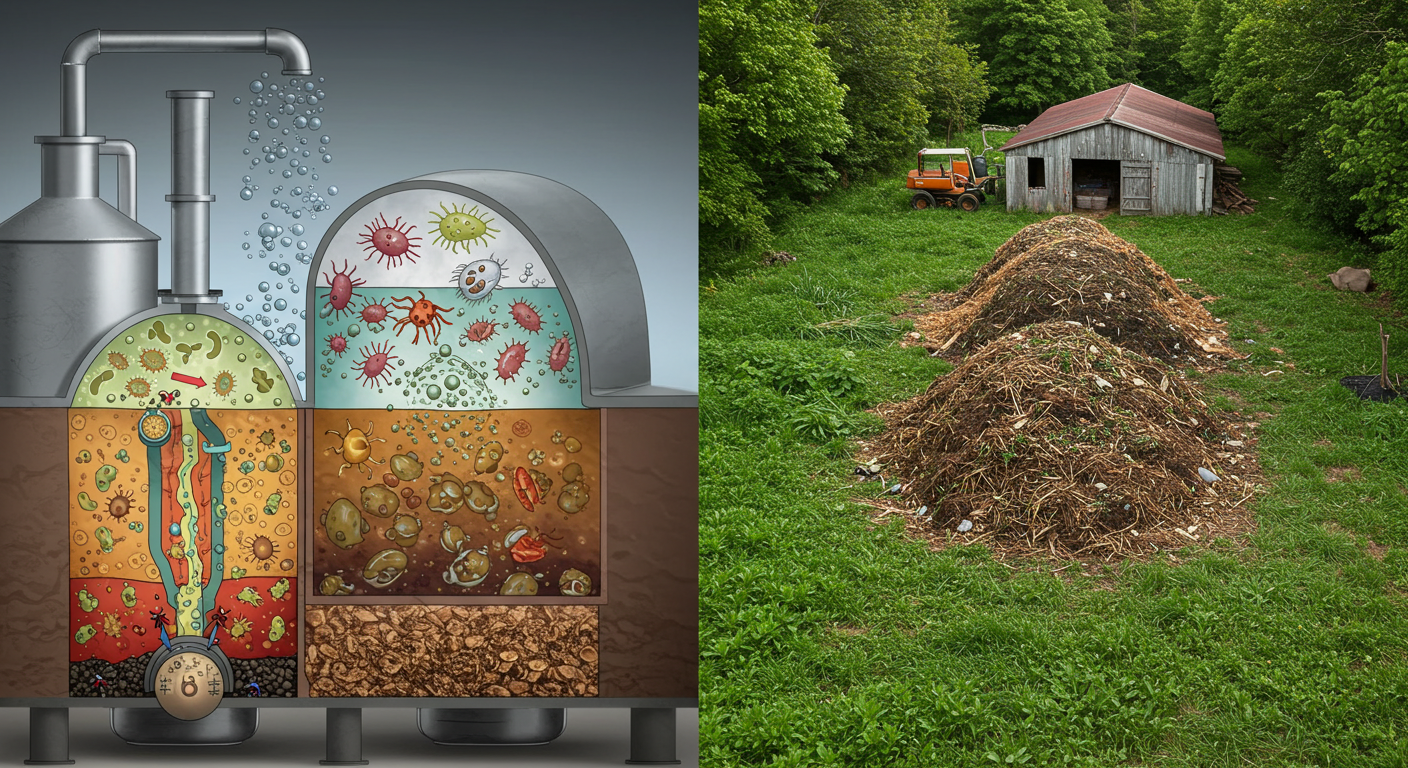Understanding Anaerobic Digestion
Anaerobic digestion is a biological process in which microorganisms break down organic materials in the absence of oxygen. This innovative technology is utilized by Mupundu Energy to convert various types of organic waste into biogas, which can subsequently be harnessed for electricity generation. The process occurs in a sealed environment called a digester, where anaerobic bacteria thrive, allowing them to decompose organic matter efficiently.
The biological processes involved in anaerobic digestion encompass several stages. Initially, complex organic materials are broken down into simpler compounds through hydrolysis. This is followed by the acidogenesis phase, where bacteria convert these compounds into volatile fatty acids. Subsequently, acetogenesis occurs, transforming these acids into acetic acid, hydrogen, and carbon dioxide. Finally, in the methanogenesis stage, archaea, a distinct group of microorganisms, convert these products into methane and carbon dioxide, resulting in biogas.
Various organic materials can serve as feedstock in anaerobic digestion. Common inputs include agricultural residues, food waste, animal manure, and sewage sludge. The versatility of feedstocks makes this process invaluable in reducing the volume of waste while simultaneously generating renewable energy. As landfills produce harmful methane emissions, anaerobic digestion offers an environmentally friendly alternative, mitigating greenhouse gas emissions significantly.
The benefits of anaerobic digestion extend beyond just waste reduction and energy production. It contributes to nutrient recycling through the generation of digestate, a nutrient-rich byproduct that can be employed as fertilizer. Additionally, this technology plays a crucial role in the transition towards sustainable energy solutions, aligning with global efforts in environmental conservation. By mitigating waste and promoting renewable energy generation, anaerobic digestion exemplifies how innovative approaches can contribute positively to our ecological footprint.
Mupundu Energy’s Role in Electricity Generation
Mupundu Energy is at the forefront of innovative energy solutions, particularly through its application of anaerobic digestion technology. This process not only provides a sustainable method for waste management but also serves as a vital component in generating renewable electricity. By converting organic materials into biogas, Mupundu Energy effectively taps into a clean energy source that contributes significantly to the electricity supply in the region.
The electricity produced from anaerobic digestion is supplied directly to the national grid operated by the Zambia Electricity Supply Corporation (ZESCO). This partnership is instrumental in enhancing the reliability of the national grid, which often faces challenges associated with fluctuating electricity generation from traditional sources. By providing consistent and renewable energy, Mupundu Energy plays a critical role in bolstering energy security, especially during peak demand periods when conventional power sources are stretched thin.
In addition to contributing to the national grid, Mupundu Energy actively engages with private off-takers, facilitating a more diversified energy supply portfolio. This dual approach ensures that both public and private sectors benefit from sustainable energy solutions. The implications of supplying electricity to these private entities extend beyond mere profit; it fosters a culture of environmentally conscious business practices while mitigating dependence on fossil fuels.
Furthermore, the operational framework of Mupundu Energy underscores its commitment to sustainability. By focusing on renewable resources and ensuring that waste is minimized, the company not only addresses energy needs but also aligns with broader environmental conservation goals. The emphasis on anaerobic digestion showcases a pragmatic approach to energy generation, thereby encouraging similar initiatives within the industry. Overall, Mupundu Energy epitomizes how innovative practices can contribute to sustainable electricity production while positively impacting environmental conservation efforts.
Environmental Benefits of Mupundu Energy’s Operations
Mupundu Energy has positioned itself at the forefront of environmental conservation through its innovative anaerobic digestion processes. These processes not only harness renewable energy but also significantly contribute to reducing greenhouse gas emissions. By converting organic waste into biogas, Mupundu Energy effectively diminishes the amount of methane – a potent greenhouse gas – that would otherwise be released into the atmosphere from landfills. This reduction in emissions plays a critical role in combating climate change and promoting a healthier planet.
Furthermore, Mupundu Energy’s initiatives directly address the issue of landfill usage. Traditional waste management practices often lead to overcrowded landfills, which can result in contamination of local ecosystems and water sources. By utilizing waste materials for anaerobic digestion, Mupundu Energy minimizes the volume of waste sent to landfills. This shift not only alleviates the burden on landfills but also promotes the principles of a circular economy, where waste is repurposed and reused rather than discarded.
The environmental advantages of Mupundu Energy’s operations extend beyond mere waste reduction. The byproducts of the anaerobic digestion process, such as digestate, can be repurposed as organic fertilizers. This promotes soil health and enhances its fertility, reducing the need for chemical fertilizers that can harm ecosystems. Additionally, cleaner air and improved water quality emerge from this process, fostering biodiversity conservation. By maintaining the balance of ecosystems, Mupundu Energy positively impacts various species and their habitats.
In essence, Mupundu Energy exemplifies how sustainable practices can lead to substantial environmental benefits. The commitment to reducing greenhouse gas emissions, minimizing landfill usage, and enhancing soil health showcases the potential for anaerobic digestion to revolutionize waste management while promoting ecological balance and resilience.
Future Prospects and Challenges
As Mupundu Energy navigates the evolving landscape of renewable energy, its future prospects are intertwined with various factors that influence environmental conservation. Technological advancements in renewable energy, including solar, wind, and biogas, play a pivotal role in shaping the company’s growth trajectory. Innovations in energy storage systems and grid integration technologies are essential for maximizing the efficiency and reliability of renewable sources. By investing in research and development, Mupundu Energy can enhance its services, making green energy more accessible and affordable for communities.
However, the company faces several challenges that require strategic navigation. One of the prominent barriers is the regulatory frameworks governing energy production and distribution. Inconsistent policies and bureaucratic hurdles can impede the deployment of renewable projects. Mupundu Energy will need to engage with policymakers and advocate for supportive legislation that promotes green energy initiatives. By fostering relationships with governmental bodies, the company can contribute to creating an environment conducive to sustainable energy practices.
Market dynamics also pose significant challenges. As competition in the renewable energy sector intensifies, Mupundu Energy must differentiate itself through innovative solutions and robust community engagement. This is crucial as public perception and customer education significantly influence the adoption of green technologies. Effective community education programs can demystify renewable energy, showcasing its benefits and fostering acceptance. Mupundu Energy’s commitment to sustainability can be amplified by actively participating in community initiatives and promoting awareness of energy conservation.
In summary, the pathway to overcoming these challenges and achieving the future prospects of Mupundu Energy lies in leveraging technological advancements, advocating for favorable regulatory conditions, and engaging actively with communities. Through these collaborative efforts, Mupundu Energy is poised to make a significant impact on environmental conservation and advance the global transition toward sustainable energy solutions.





